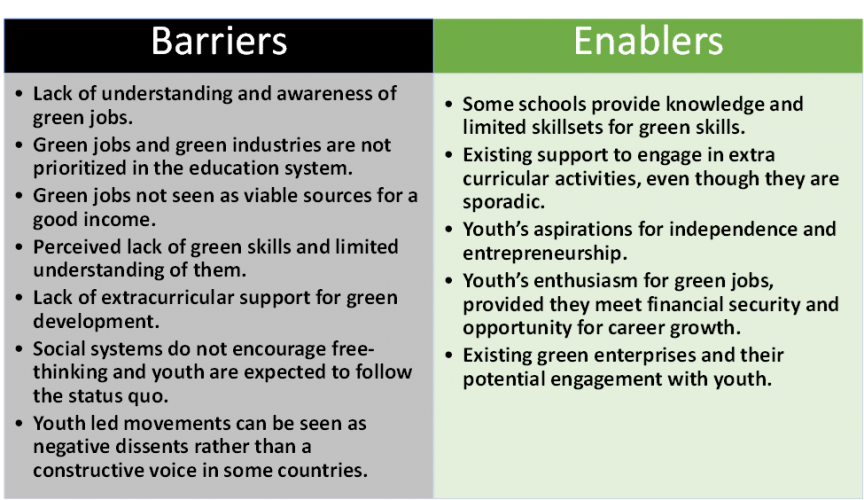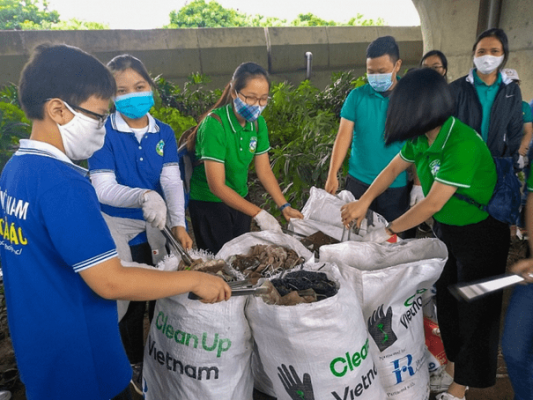Photo Credit: Vietnam Times
To provide a more robust understanding of how youth can play a leading role in environmental sustainability, Rapid Asia carried out a qualitative study with youth in Cambodia, Thailand and Vietnam, commissioned by UNESCO and UNICEF. The published report is titled: Greening the Mekong: Action for a Greener Economy with Children and Youth.
When world leaders met in Glasgow during the COP26 Summit, thousands of young people, some as young as 14 years old, marched through the city to protest inaction towards solving the global climate crisis. Speaking to the crowds, 18-year-old Swedish climate activist Greta Thunberg warned that “we cannot solve a crisis with the same methods that got us into it in the first place.”
Thousands of kilometres to the east, a young environmental activist in Thailand, expressed similar frustration. “By the time the government tried to alleviate the problem [of air pollution], it was already too late, and this showed that they do not prioritise environmental issues.”
A common adage is that “youth are the future.” Nowhere does this seem more relevant than in Cambodia, Thailand, and Viet Nam, where those under 25 years of age represent more than 25% of the population. Yet, according to the Rapid Asia study, most young people are in a similar situation to that of the protestors in Glasgow when it comes to combatting climate change.
For instance, despite some advancement in climate change policies at the national level, youth in the Mekong felt that their governments had not prioritised climate change policies and actions. There is further little recognition of the value of youth contributions as part of drafting national policies related to climate change.
However, there are opportunities for youth to help accelerate green growth. Many passionate young people are leading efforts to promote green alternatives in their communities, such as Aok Sochenda, who launched a zero-waste education platform on social media in Cambodia called Zerow. But for most other young people who stand to be impacted by climate change, the awareness of the exact problem and solutions and what they can do about it is not there. Lack of information, combined with fear of joining youth movements and possibly attracting the ire of their elders, discourages many potential young leaders from taking action.

Figure 1. Youth empowerment barriers and enablers
Considering the existing opportunities through which young people in Cambodia, Thailand, and Viet Nam promote environmental sustainability, as well as the barriers, the study made several recommendations for empowering youth further, including:
- Establishing spaces that enable young people to become involved in initiatives on topics such as environmental and climate change issues;
- Establishing mentoring and internship programs to help connect students with green industries or entrepreneurs;
- Incorporating climate change and sustainability in the curriculum for both schools and vocational training programmes;
- Strengthening of youth networks by connecting them with like-minded young people, community action and government, NGO and UN events and activities; and
- Creating resources and materials to promote youth action that can be shared through social media with country-specific examples.
As is the custom and expectation amongst families in Cambodia, Thailand, and Viet Nam, that youth will take care of their elders, and their planet, in the future. To fully prepare them for that role, we must invest in them today by giving them a seat at the decision-making table.
The report titled: Greening the Mekong: Action for a Greener Economy with Children and Youth study can be found here.
If you found this article useful, please Like and share on social media, and hit the ‘Follow’ button never to miss an article. You may also want to read this article: Enabling youth participation in sustainable futures.
About the authors: Daniel Lindgren is the Founder of Rapid Asia Co., Ltd. a social research and consulting firm based in Bangkok specialising in evaluations for programs, projects, social marketing campaigns and other social development initiatives. David Young is an independent consultant working with Rapid Asia as a member of their expert panel of consultants. Learn more about our work at www.rapid-asia.com.

